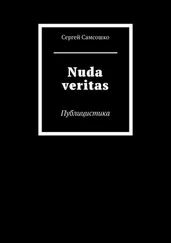Rita Monaldi - Veritas
Здесь есть возможность читать онлайн «Rita Monaldi - Veritas» весь текст электронной книги совершенно бесплатно (целиком полную версию без сокращений). В некоторых случаях можно слушать аудио, скачать через торрент в формате fb2 и присутствует краткое содержание. Жанр: Исторический детектив, на английском языке. Описание произведения, (предисловие) а так же отзывы посетителей доступны на портале библиотеки ЛибКат.
- Название:Veritas
- Автор:
- Жанр:
- Год:неизвестен
- ISBN:нет данных
- Рейтинг книги:3 / 5. Голосов: 1
-
Избранное:Добавить в избранное
- Отзывы:
-
Ваша оценка:
- 60
- 1
- 2
- 3
- 4
- 5
Veritas: краткое содержание, описание и аннотация
Предлагаем к чтению аннотацию, описание, краткое содержание или предисловие (зависит от того, что написал сам автор книги «Veritas»). Если вы не нашли необходимую информацию о книге — напишите в комментариях, мы постараемся отыскать её.
Veritas — читать онлайн бесплатно полную книгу (весь текст) целиком
Ниже представлен текст книги, разбитый по страницам. Система сохранения места последней прочитанной страницы, позволяет с удобством читать онлайн бесплатно книгу «Veritas», без необходимости каждый раз заново искать на чём Вы остановились. Поставьте закладку, и сможете в любой момент перейти на страницу, на которой закончили чтение.
Интервал:
Закладка:
I will make known with the next courier what else I can find out about this new Theseus. His Machine has been taken to the arsenal.
P.S.
I have just been informed that the so-called Flying Navigator has been incarcerated, as a Magician and Sorcerer of the first rank, and it appears that he will be burned with great urgency together with his Pegasus; this is perhaps to keep his art secret, since if it became common knowledge it could cause great trouble in the world.
I asked him if the winged sailing ship which lay abandoned in the Place with No Name was really the glying ship spoken of in the dispatch. By way of answer Frosch handed me another piece of paper. This time it was an illustration taken from an old issue of the Diary of Vienna.
There was not the shadow of a doubt: it was a faithful drawing of the ship. It was accompanied by a short account dated 1st June 1709:
There has arrived here at the Caesarean Court from Portugal a courier with letters of 4th May and the present illustration of a device for flying, capable of travelling two hundred miles in twenty-four hours and with which war troops, letters, reinforcements, provisions and money could be sent even to the farthest lands, and in addition places under siege could be supplied with all necessities, including goods and commerce. A document has been shown which was presented to His Majesty the King of Portugal by a Brazilian priest, inventor of the aircraft. On 24th June next a trial flight will be essayed in Lisbon.
I felt a jolt in my heart: had that sailing ship really flown, as I had believed it to be doing in my desperate agitation?
It was no surprise that the ship had come from Portugal, Frosch went on to explain: just a year earlier, in 1708, the king of that country had married one of Joseph’s sisters, Anna Maria. The ship had remained for a few months in the city arsenal, until the emotions aroused by its arrival had calmed down. Meanwhile the city authorities, as was reported in the gazette, had done all they could to hush the matter up. Nothing had been recounted to the Emperor: Joseph was very young, lively in spirit and enterprising; he had already become overexcited at the sight of the drawings brought to him by the Portuguese courier. He would certainly have wanted to see and study the diabolical invention, and this, in the opinion of the old ministers, was to be avoided at all costs. No one must know. The Flying Ship was dangerous, and could provoke turmoil and disorder.
I was amazed at these words: had not man dreamt for centuries of cleaving the air like a bird? It was no surprise that Frosch’s gazette compared the Flying Ship to the mythical Pegasus, the winged ship from the ancient Greek sagas, and its pilot to the heroic Theseus, slayer of the Minotaur. Nonetheless, the gazette openly condemned the poor aerial wayfarer, who had even been incarcerated. I myself would have given my own soul to find out how he had flown, and where he had obtained his knowledge. I asked the keeper if he knew anything. He shook his head.
Once the matter had been hushed up, he continued, the caravel of the air was secretly transported outside Vienna, to the abandoned castle. Nobody was likely to go snooping around there. And if it were to be needed one day, it could always be salvaged.
I walked around the boat, and then boarded it, clambering up on one of the wings, which were carved in wood like the tail and the bird’s head, and which served almost as gangplanks.
Overhead were ropes supported by four poles, two at the prow and two at the stern, similar to the cords one uses to hang washing. Only it was not clothes that were hung from them, but stones. They were little yellow things that sparkled, and they were secured to the ropes with little pieces of string. Not being able to reach them with my hand, I screwed up my eyes, trying to make out what material they were made of, and suddenly I realised:
“Amber. It’s amber. Good Lord, it’s beautiful, it looks like good quality. It must cost an arm and a leg. Why on earth have they been put there. .”
Once again I glanced at Frosch; I could tell from his face he had no idea what purpose the stones served.
I climbed down and examined the mysterious vessel again. The curious machine, to tell the truth, was not in the pitiful state to which a prolonged exposure to rain, wind and sun might have reduced it. The wood was actually in good condition; it was as if, every so often, someone had rubbed it over with a protective oily varnish, like the one I had seen fishermen brush their boats with on the Tiber in Rome. Then I noticed that the surface of the hull was not flat and smooth, like the fishing boats. It was made up of rectilinear tubes that ran the whole length from prow to stern, as if the craft were nothing more than a bundle of pipes.
I tapped my knuckles on one of the tubes. It sounded hollow, as did the others that I tried. The tubes had moulded openings towards the prow as if they were supposed to collect something. At the stern — which is to say, at the tail end of these tubes — were trumpet-like openings, which appeared to be made to channel upwards — and so towards the sail that covered the whole boat — what was collected at the prow.
I had a look at the mast, which was still upright, at the proud prow, and at the small graceful deck. Here and there planks had been replaced, cracks patched up, loose nails fixed. Under close inspection, the small ship did not appear damaged or derelict. It was just out of commission, as if in the Place with No Name it had found a dock where it could be fixed, and perhaps also an attentive ship-boy to look after it.
“It’s a small ship in every sense,” I remarked, as I stroked the keel meditatively, which was not at all worn.
“Right, a ship of fools!” quipped the keeper with a coarse laugh.
At those words I gave a start.
I wanted to get away. The afternoon’s events had prostrated me. What was more, I was now on foot: Simonis had fled with the cart to take my little boy to safety. I had a long walk ahead of me. I would come back the next day to start work. I told Frosch so, asking him to look after the chimney-sweeping tools that I had left in the cellar when I took to my heels.
Before leaving, I gave a last look at the building we were in. As I had already noticed, it had no roof. But it was only then that I realised how enormous this space was — as broad, long and tall as an entire palace.
“What is. . What is this place?” I asked in surprise.
“The ball stadium,” answered Frosch.
And he explained (although, I repeat, it was not always easy for me to follow his idiom) that in the days of Emperor Maximilian, the founder of the Place with No Name, the ball game imported from Italy had become popular among the great lords. In this recreation the players faced one another with a sort of wooden sheath on their arms, with which they competed for a leather ball, slamming it vigorously, like cannon shots, trying to get the better of their adversaries. Frosch added with a snigger that wearing your guts out over a ball was ridiculous, and unsuited to the court of a Caesar, and a game of this sort was bound to be forgotten forever, and this, indeed, was what had happened; but in those remote times the pastime must have had quite a following, because otherwise such a generous space would not have been set aside for it.
Frosch was a wild-looking man with a big pear-shaped face, which was grey down to his nose and rubicund below the cheeks, with a greying moustache, pale eyes, a large belly and hands as large and rough as shovels. He was not likeable, I thought, but nor was he bad. He was a man to be treated with circumspection, like his wild animals: animals are capricious by nature, man becomes so through a thoughtless love of alcohol. Frosch could tame lions, but not his own thirst.
Читать дальшеИнтервал:
Закладка:
Похожие книги на «Veritas»
Представляем Вашему вниманию похожие книги на «Veritas» списком для выбора. Мы отобрали схожую по названию и смыслу литературу в надежде предоставить читателям больше вариантов отыскать новые, интересные, ещё непрочитанные произведения.
Обсуждение, отзывы о книге «Veritas» и просто собственные мнения читателей. Оставьте ваши комментарии, напишите, что Вы думаете о произведении, его смысле или главных героях. Укажите что конкретно понравилось, а что нет, и почему Вы так считаете.











